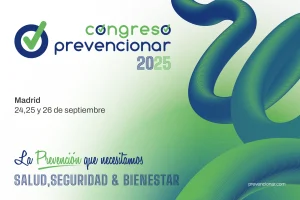If you have come here seeking to understand what is document management, you are in the right place. From our experience as a platform specialised in this field, we want to explain it to you straightforwardly, without unnecessary technicalities and with real examples. Because it's not just about “saving documents”. It's much more than that.
Document management is the a set of processes, tools and strategies that allow documents to be organised, stored, accessed and controlled in an efficient way. In other words, it's about putting order where there used to be chaos: in shared folders, in emails that get lost, in duplicate files, in the “I'll send it to you by WhatsApp because I can't find it”.
Much more than digitising paper
Often, when someone first hears this term, they think of scanners and PDFs. But modern document management goes far beyond that. It is not just about transforming physical papers into digital files, but about creating a living, dynamic system that allows you to find, share and protect your organisation's critical information.
On our platform, for example, we work with customers who want to automate processes such as signing contracts, validating quotes or archiving legal documents. They don't just want to “store”, they want to the system works for them, ensuring order, traceability and immediate access.
Why is it so important today?
Because we live in a world where information multiplies by the minute. And the more teams grow, the more complicated things get: documents get lost, versions get confused, permissions are forgotten. In such an environment, having good document management it is not optional, it is essential.
And it's not just about productivity. It is also a question of regulatory compliance, data security and agility. And if this is achieved with an intuitive and accessible tool, even better.
Real (and measurable) benefits of document management
One of the big mistakes is to think that implementing document management is an expense. We see it every day from the other side: is an investment that saves time, reduces errors and improves collaboration.. Most importantly, it allows people to focus on what really adds value.
When a team doesn't have to spend time searching for a file, asking by mail where a signed document is, or generating new versions because they don't know what the final version is, everything improves. Less friction, more efficiency.
What exactly does a document management platform do?
Each solution has its own particularities, but in essence, a good platform like ours should offer you the following:
- Centralised and secure storageall documents in a single place, accessible according to the permissions defined.
- Workflow automationDocument creation, review, approval and signature with automated tracking.
- Version control and traceabilityEvery change is recorded, avoiding duplication and errors.
- Remote and multi-user accessfrom any device, with total security and without relying on physical offices.
- Integration with other toolsfor documentation to flow unhindered between departments.
What is important is not the technology itself, but how it adapts to the way each team works. That's why we always talk about solutions and not just software.
What if you still work with shared folders or emails?
It's OK. We all started there. But if you're here, it's because you know that there are limits to that system. When teams grow, when documents increase, when processes become complex... this is when professional document management makes the difference.
And it's not about complication, it's about simplification. We design our solutions to do just that: to help you work better without adding more weight to your day-to-day life.
Document management is not the future - it is the present
If there is one thing we have learned as a company, it is that organisations that opt to professionalise their document management not only gain efficiency. They gain peace of mind. They gain order. They gain time.
So if you were wondering what is document management, Now you know that this is not a fad, or something reserved for large corporations. It is a real, useful and accessible tool that can transform the way you work today.
Other articles that might interest you


Quioo at the 5th International Congress Prevencionar 2025

